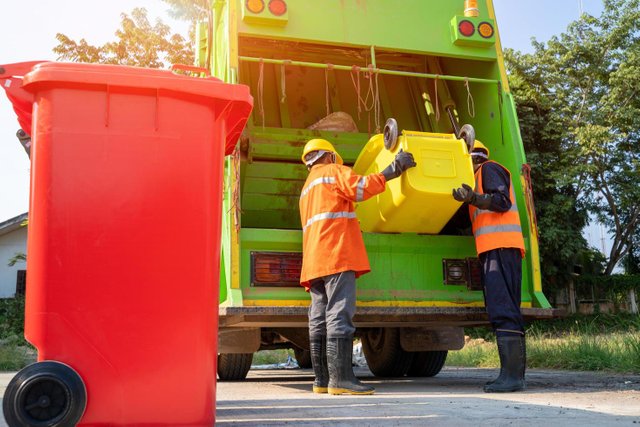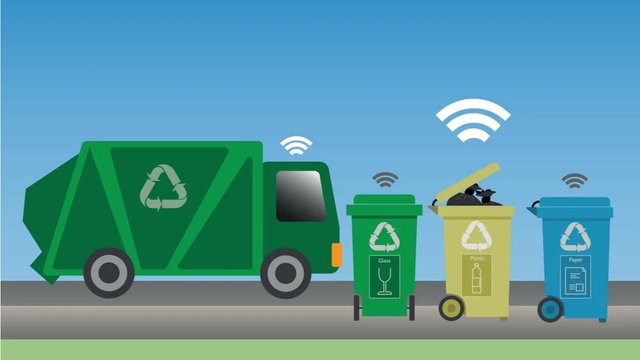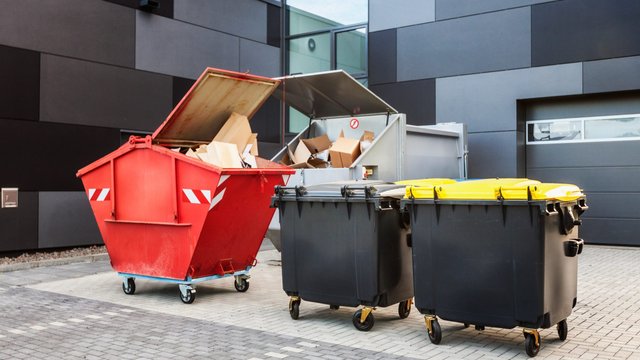The Future of Commercial Garbage Removal: Innovations and Trends in NJ
New Jersey, known for its bustling cities and thriving businesses, has long grappled with the challenge of managing commercial garbage efficiently. As environmental concerns grow and regulations become stricter, the future of commercial garbage removal in the Garden State is being reshaped by innovations and trends. In this article, we will delve into the emerging technologies and trends in garbage removal, with a specific focus on their applicability in New Jersey.

The Current State of Commercial Garbage Removal in NJ
Before we dive into the future, it's crucial to understand the present challenges faced by commercial garbage removal in New Jersey. Like many urbanized states, New Jersey produces a significant amount of waste. This waste comes from various sources, including businesses, households, and industries. Traditional garbage removal methods, such as landfilling and incineration, have been the norm for decades. However, these methods come with environmental concerns, limited space for landfills, and air quality issues.
In recent years, there has been a growing awareness of the need for more sustainable and efficient waste management practices. This has led to the exploration of innovative solutions that could transform the landscape of commercial garbage removal in New Jersey.
Waste-to-Energy Solutions
One of the most promising innovations in garbage removal is the adoption of waste-to-energy (WTE) solutions. These systems convert waste into energy through various processes like incineration, pyrolysis, or anaerobic digestion. In New Jersey, where landfill space is becoming increasingly scarce and costly, WTE solutions offer a viable alternative.
Incineration
Incineration involves the combustion of waste at high temperatures, generating heat and electricity. The energy produced can be used to power homes and businesses. In New Jersey, there has been a renewed interest in waste incineration as a way to reduce landfill dependency.
Incineration plants are equipped with advanced emission control technologies, ensuring that harmful pollutants are minimized. This addresses concerns about air quality, which have hindered the widespread adoption of incineration in the past.
Anaerobic Digestion
Anaerobic digestion is another waste-to-energy process gaining popularity in New Jersey. It involves breaking down organic waste in the absence of oxygen, producing biogas (methane) that can be used for electricity generation or as a fuel source. The residual material, known as digestate, can be used as a nutrient-rich fertilizer.
This process is particularly valuable in the context of New Jersey's food industry, which generates a significant amount of organic waste. By diverting organic waste from landfills and harnessing it for energy, the state can reduce its environmental footprint while creating a renewable energy source.

Smart Waste Management Systems
The future of garbage removal in New Jersey isn't limited to waste-to-energy solutions. Smart waste management systems are another transformative trend that promises more efficient and sustainable waste collection.
IoT Sensors
Internet of Things (IoT) technology is revolutionizing waste management. Smart bins equipped with sensors can monitor their fill levels in real-time. When a bin reaches a certain capacity, it triggers an automatic pickup request. This reduces the need for regular scheduled collections, cutting down on fuel consumption and emissions.
In a densely populated state like New Jersey, where traffic congestion is a common issue, IoT-enabled waste management systems can greatly improve efficiency and reduce the carbon footprint of garbage removal operations.
Data Analytics
Data analytics plays a crucial role in optimizing waste collection routes and schedules. By analyzing historical data and real-time information from IoT sensors, waste management companies can identify patterns and make data-driven decisions. This results in cost savings, reduced emissions, and more responsive services.
Moreover, data analytics can help identify areas with high waste generation, allowing for targeted recycling and waste reduction initiatives in communities that need them most.
Recycling and Circular Economy Initiatives
The future of commercial garbage removal in New Jersey is intrinsically linked to recycling and the development of a circular economy. Recycling rates have been on the rise, but there is still significant room for improvement.
Single-Stream Recycling
Single-stream recycling programs have gained traction in New Jersey, simplifying the recycling process for both residents and businesses. With single-stream recycling, all recyclables can be placed in a single bin without sorting. This convenience encourages higher participation and, in turn, increases recycling rates.
Circular Economy Practices
New Jersey is increasingly recognizing the economic and environmental benefits of a circular economy. This approach promotes the recycling and repurposing of materials, reducing waste and conserving resources. Businesses are exploring ways to design products with recyclability and reusability in mind, reducing the overall waste generated.
Green Transportation and Fleet Electrification
The vehicles used for garbage collection are a significant source of emissions. To address this issue, New Jersey is exploring greener alternatives.
Electric Waste Collection Vehicles
The adoption of electric waste collection vehicles is on the rise. These vehicles produce zero tailpipe emissions and have lower operating costs over their lifetime. New Jersey has already started to introduce electric collection trucks in some municipalities.
Furthermore, the state is working to expand the charging infrastructure to support the widespread adoption of electric vehicles for garbage collection, reducing the carbon footprint of these essential services.
The future of commercial garbage removal in New Jersey is marked by innovation and sustainability. Waste-to-energy solutions like incineration and anaerobic digestion offer an alternative to traditional landfilling, helping to address space constraints and reduce environmental impacts. Smart waste management systems powered by IoT technology and data analytics promise greater efficiency and reduced emissions in garbage collection operations.
Recycling and circular economy initiatives are on the rise, aiming to minimize waste generation and maximize resource efficiency. Green transportation and fleet electrification are transforming the vehicles used for garbage collection, reducing emissions and supporting a cleaner environment.
As New Jersey continues to embrace these innovations and trends, it moves closer to a future where garbage removal is not just a necessity but also a sustainable and eco-friendly endeavor, ensuring a cleaner and healthier Garden State for generations to come.
To dive deeper into the innovations and trends shaping commercial garbage removal in the Garden State, make sure to read the full blog: https://zhannascleaning.com/cost-effective-strategies-for-commercial-garbage-removal-saving-money-while-saving-the-planet/. Discover how waste-to-energy solutions, smart waste management systems, recycling initiatives, and more are revolutionizing the way we handle waste. By staying informed and actively participating in these initiatives, we can all contribute to a cleaner and greener New Jersey.

Local Cleaning Companies: Elevating Commercial Garbage Removal in NJ
In the ever-evolving landscape of commercial garbage removal in New Jersey, companies like Zhanna's Cleaning: https://zhannascleaning.com/ are playing a pivotal role in driving innovation and sustainability. Zhanna's Cleaning is a locally renowned cleaning and waste management company that has been making waves in the industry by offering comprehensive waste solutions tailored to the unique needs of New Jersey businesses. Their commitment to eco-friendly practices and cutting-edge technologies sets a remarkable precedent. Zhanna's Cleaning employs state-of-the-art waste sorting and recycling techniques, ensuring that the materials collected are processed efficiently, diverting a substantial amount from landfills. Furthermore, their dedication to using environmentally friendly cleaning products and adopting energy-efficient practices in their operations exemplifies their holistic approach to responsible waste management. As Zhanna's Cleaning continues to set industry standards, it serves as an inspiring example of how businesses in New Jersey can lead the way in shaping the future of commercial garbage removal towards a greener and more sustainable horizon.